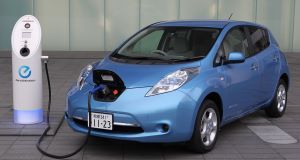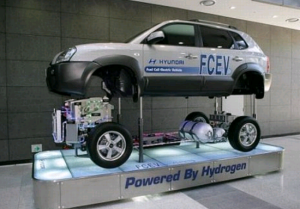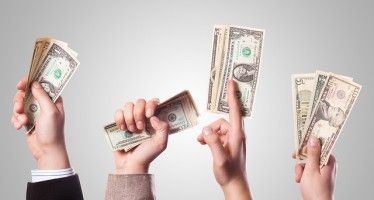Vehicle-fee extension would funnel taxes of less affluent to the rich
July 8, 2013
By Dave Roberts
 Assembly Democrats, many of whom see themselves as champions of the downtrodden, instead became reverse Robin Hoods recently, robbing from the poor and middle class to give to the rich. Nearly every Democrat along with two Republicans approved AB 8 on June 27, which extends until 2024 a variety of vehicle fees that were due to expire next year.
Assembly Democrats, many of whom see themselves as champions of the downtrodden, instead became reverse Robin Hoods recently, robbing from the poor and middle class to give to the rich. Nearly every Democrat along with two Republicans approved AB 8 on June 27, which extends until 2024 a variety of vehicle fees that were due to expire next year.
Some of those fees, which are the same whether they are imposed on a $500 clunker or a $387,000 Lamborghini, subsidize the purchase of electric vehicles -– the kind of cars that tend to be purchased by the wealthy. The typical recipient of the state’s clean vehicle rebate earns more than $150,000 per year, according to the legislative analysis for AB 8.
Purchasers of Nissan Leafs receive a $7,500 federal tax credit and a $2,500 rebate from California taxpayers. More than 6,700 rebates had been dispensed as of Dec. 31, 2012. Nearly 450 rebates were also handed out to buyers of the Tesla Model S, which costs $70,000 for the base model and can exceed $100,000 with upgrades. As an added bonus, electric vehicle owners don’t have to pay the smog abatement fee that funds their rebate.
 Subsidizing infrastructure for $200k cars
Subsidizing infrastructure for $200k cars
In addition, AB 8 authorizes spending $220 million from vehicle registration fees to fund the development of up to 100 hydrogen fueling stations. You’ll need to shell out nearly $200,000 to buy a hydrogen-powered car.
Sticking poor and middle class Californians with the tab in order to give hundreds of millions of dollars to benefit rich Californians was one of the concerns raised by Assemblyman Tim Donnelly, R-Twin Peaks, before the floor vote:
“This bill is going to cost taxpayers $2.3 billion over the next eight years. What are we doing creating a hydrogen highway that a handful of Californians are going to use, but we’re taxing every single driver? Every single Californian that is on their way to work right now is going to have to pay for something they may never use, may never be able to afford to use it. And we don’t have enough money in California to subsidize hydrogen vehicles for everybody. Maybe I shouldn’t give you any ideas.
“This is a terrible idea. It is a regressive tax. It is a tax that is going to hit the hardest working, most vulnerable, lowest income people where it hurts the most. The cost of fuel is continually going up. And every time we pile more taxes on those who drive an automobile, we are taxing progress. We are taxing the people who say, ‘Hey, I’m not just going to sit around and collect a check. I want to go to work.’ And we are creating an obstacle to them bettering themselves by their own efforts.”
Several Democrats defended the extension of the vehicle fees, arguing that the money is necessary to reduce air pollution.
“Californians suffer from the worst air pollution in the nation with over 90 percent of residents living in counties with unhealthy air,” said the bill’s author, Henry Perea, D-Fresno. “While great progress has been made in improving air quality, California has two of the most polluted regions in the nation: the South Coast air basin and the San Joaquin Valley. AB 8 seeks to expand California’s clean air and clean vehicle incentive programs in order to meet clean air, public health, climate and economic development goals.”
“Let’s not burden our constituents again and again and again”
Don Wagner, R-Irvine, acknowledged “that there are some good things to like in this bill.” But he argued that the cost is too high.
“What we are doing here is raising $250-$275 million each year on your constituents,” said Wagner. “And there’s no good reason for that. You can’t keep going back to the tax well over and over and over again. At some point we’re going to have the cleanest air in the world because we will have driven everybody out of the state. This is not the way to go. Let’s not burden our constituents again and again and again.”
A Senate version of the bill, SB 11, has been referred to the Senate Committee on Natural Resources and Water. SB 1455, which was nearly identical to AB 8, passed the Assembly last year but failed to gain the necessary two-thirds support in the Senate.
Related Articles
Rail plan will crush land owners
JUNE 10, 2010 By ANTHONY PIGNATARO Jim Erickson is in a tough spot. If the proposed California High Speed Rail
Weeds could whack your house and job
Failure to keep up your property in California could damage your credit rating, prohibit you from buying or selling property,
Legislature passes record $117 billion budget
On Monday, the California Legislature passed a $117 billion state budget on a 52-28 vote, meeting the June 15 deadline




